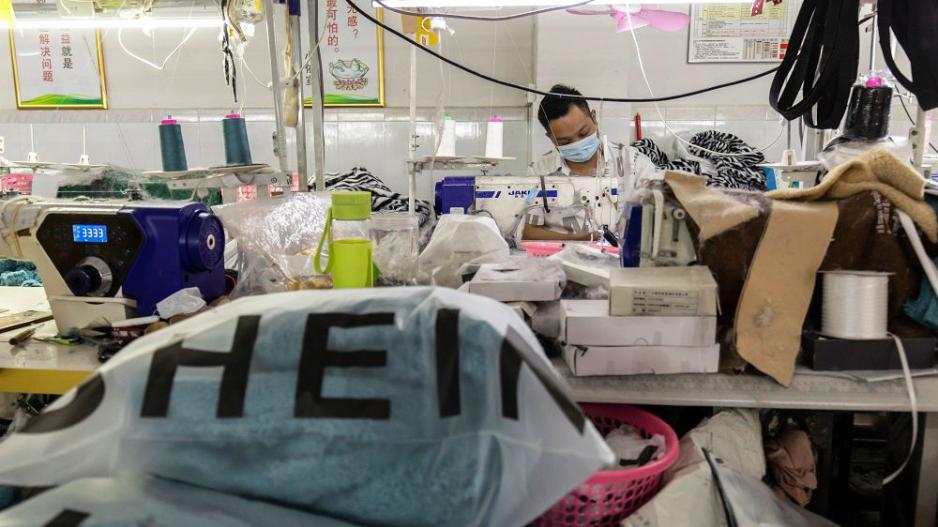Long Work Hours Persist at SHEIN's Supplier Factories, Despite Promises of Improvement
Recent Study Reveals Ongoing Labor Issues in Chinese Factories Supplying to Fast Fashion Giant
Workers at some factories of the Chinese fast fashion giant SHEIN, which has frequently been spotlighted for its labor conditions, continue to work 75 hours per week despite the company's promise to improve the situation.
A new investigation by the Swiss organization Public Eye follows up on a 2021 report showing that a significant number of workers at six factories in Guangzhou were doing excessive overtime.
According to the team, which interviewed 13 workers from six factories in China supplying SHEIN, excessive overtime remains common for many employees.
SHEIN previously told the BBC that it is "working hard" to address the issues highlighted in the Public Eye report and claimed it has made "significant progress in improving conditions."
"I work every day from 8:00 AM to 10:30 PM and take one day off each month," stated a worker who has been employed for 20 years in his interview with Public Eye.
The interviews took place during the summer of 2023. Those interviewed were working in production facilities west of Nankun village in the Guangzhou region of southern China.
The respondents, aged between 23 and 60 years, reported working an average of 12 hours per day without breaks. They also said they typically work six to seven days per week.

The workers also claimed that their salaries have barely changed since the first survey, ranging from 6,000 to 10,000 yuan per month ($663 to $1,104).
Public Eye notes that the basic wage for the workers after excluding overtime is 2,400 yuan ($265). According to the Asia Floor Wage Alliance, the living wage in China is approximately 6,512 yuan ($719).
The respondents claimed that if they made a mistake, they would have to make any corrections to the clothing without compensation. "Whoever makes the mistake is responsible for fixing it," said a 50-year-old supervisor.
Furthermore, the workers reported an increase in security cameras in the factories and believed that the footage was being directly sent to SHEIN.
Public Eye also observed instances of factories having children on-site, teenagers packing items, and non-enforcement of smoking bans.
Regarding child labor in factories, the company told Public Eye, "We do not tolerate child labor. We address any violations with utmost strictness." Finally, it noted that some workers in factories face the challenge of balancing work and childcare, which "may result in workers bringing their children to their workplace."






